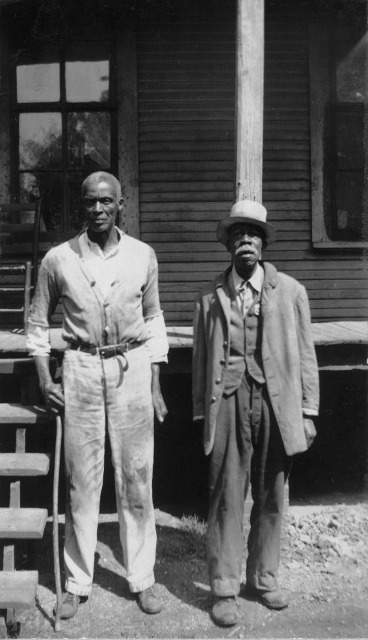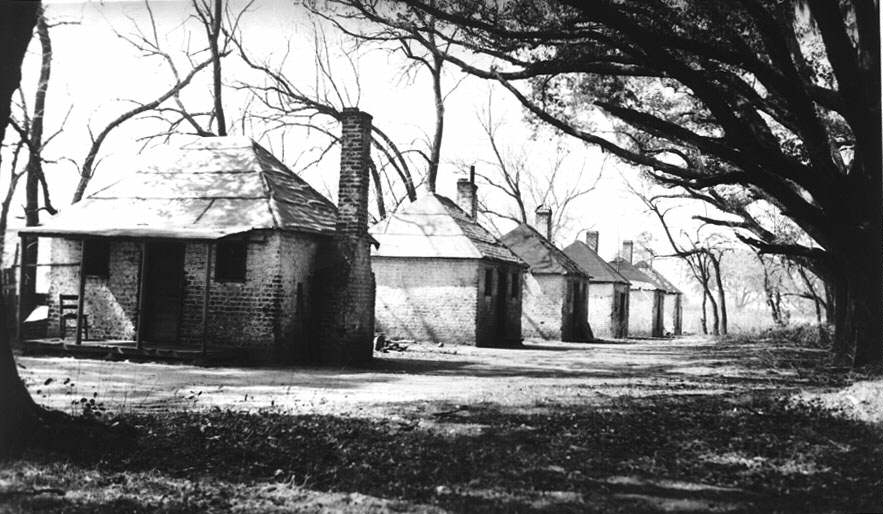
Simon Phillips was one of 300 Negroes belonging to Bryant Watkins, a planter of Greensboro, Alabama. He was a house man, which means that he mixed the drinks, opened the carriage doors, brought refreshments on the porch to guests, saw that the carriage was always in the best of condition and tended the front lawn. When asked about slave days, he gets a far-away expression in his eyes; an expression of tranquil joy.
Simon Phillips, Birmingham, Alabama
During the War between the States, Simon served as body guard for John Edward Watkins, son of the plantation owner. Body guards went with their owners and cleaned the guns, kept the camp in order and did some cooking. Simon entered the war at the age of fourteen in Joe Wheeler's 51st cavalry. He distinctly recalls the time he stood within ten feet of the great general while he was making a speech.
Sometimes slaves were parted from their families, because when one planter bought a Negro from another planter, he did not necessarily buy his wife or children, or husband, as the case might be. The slaves were advertised around and put on a block to stand while they were auctioned. Women invariably brought more than men. He was asked, "about overseers, Simon. What sort of men were they?"

"Well," he answered, "some was mighty mean. When the massa be away, they tried to think up things to whup us for. But when the massa around, had he catch 'em gettin' ready for to beat a slave, he say, 'don't cut no blood from that Nigger!'"
Born in Hale County in 1847, Simon Phillips stayed with his master until 1886 at which time he went to live in Tuscaloosa to earn 17¢ a day, but he says he fared better on it than on three dollars now.
After the war many Negroes stayed with their masters and he remembers that some of the carpetbaggers came through his plantation and tried to make the ex-slaves stake off the land, saying that half of it belonged to them.
"One day," says Simon, "a few niggers was stickin' sticks in the ground when the massa come up.
"'What you Niggers doin'?' he asked.
"'We is stakin' off de land, massa. The Yankees say half of it is ourn.'
"The massa never got mad. He jus' look calm like.

"'Listen, niggers' he says, 'what's mine is mine, and what's yours is yours. You are just as free as I and the missus, but don't go foolin' around my land. I've tried to be a good master to you. I have never been unfair. Now if you wants to stay, you are welcome to work for me. I'll pay you one third the crops you raise. But if you wants to go, you sees the gate.'
"The massa never have no more trouble. Them niggers jus' stays right there and works. Sometime they loaned the massa money when he was hard pushed. Most of 'em died on the old grounds. I was the youngest of a family of sixteen and I has one sister still livin' on the old plantation. I'm going down to see her next week, 'cause I can never tell when the Great Master is goin' to call. We's gotta be ready when he does, and both us is gettin' mighty old. I wanta be sure and see her and the old place once more." (source: Alabama Slave Narratives)
0 comments:
Post a Comment